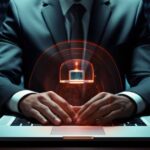In the digital age, where information holds immense power, the phenomenon of 6ar6ie6 leaks has emerged as a controversial yet pivotal topic. These unauthorized disclosures of sensitive or confidential data have the potential to shake the foundations of governments, corporations, and institutions worldwide.
From exposing corruption and wrongdoing to fueling political upheaval, 6ar6ie6 leaks have become a double-edged sword, igniting debates around transparency, accountability, and individual privacy. In this comprehensive guide, we delve into the depths of 6ar6ie6 leaks, exploring their origins, implications, and the multifaceted controversies surrounding them.
The Origins of 6ar6ie6 Leaks
To understand the significance of 6ar6ie6 leaks, we must first trace their origins. These unauthorized disclosures of sensitive information often find their roots in the murky realms of the internet, where anonymity and secrecy intersect. From obscure forums to the darkest corners of the web, the birth of 6ar6ie6 leaks can be attributed to the relentless pursuit of truth and the desire to expose wrongdoing.
The pivotal moment that catapulted 6ar6ie6 leaks into the global spotlight can be traced back to the emergence of whistleblowers like Edward Snowden and Julian Assange. These individuals, driven by a sense of moral obligation, risked everything to reveal classified government secrets, shedding light on controversial surveillance programs and diplomatic cables. Their actions sparked a firestorm of debate, igniting discussions around the delicate balance between national security and the public’s right to know.
The Evolution of Leaking Culture

As the world grappled with the implications of these high-profile leaks, a leaking culture began to take shape. Individuals with access to sensitive information found themselves at a crossroads, torn between loyalty and the desire for transparency. The motivations behind leaking varied, ranging from ideological beliefs to personal vendettas, but the common thread was a sense of urgency to expose what they deemed unjust or unethical.
Social media platforms and encrypted messaging apps facilitated the rapid dissemination of leaked information, enabling whistleblowers and leakers to bypass traditional channels. This democratization of information sharing fundamentally altered the dynamics of power, challenging the traditional gatekeepers of information and empowering individuals to hold governments and corporations accountable.
Also read this Post: WONDERS OF WDROYO TECHNOLOGY
Navigating the Ethical Quandaries
6ar6ie6 leaks, however, are not without their ethical dilemmas. As the world grapples with the implications of these disclosures, difficult questions emerge about the delicate balance between public interest and individual rights. On one hand, leaks have shed light on corruption, abuse of power, and human rights violations, serving as a crucial check on those in positions of authority. They have empowered citizens to demand transparency and hold their leaders accountable.
On the other hand, the indiscriminate release of sensitive information can jeopardize national security, compromise ongoing investigations, and put lives at risk. The ethical complexities surrounding 6ar6ie6 leaks are further compounded by concerns over privacy and the potential misuse of leaked data for nefarious purposes.
Legal Battles and Moral Debates
The legal landscape surrounding 6ar6ie6 leaks is equally complex, with jurisdictions grappling with how to address these unauthorized disclosures. In many countries, whistleblowers and leakers face severe legal consequences, including charges of espionage, theft of government property, or unauthorized disclosure of classified information.
High-profile cases, such as those involving Chelsea Manning and Reality Winner, have highlighted the stark consequences faced by those who choose to leak sensitive information. These cases have sparked intense debates around the necessity for robust whistleblower protection laws and the role of journalism in facilitating and reporting on leaks.
On the flip side, governments and corporations have ramped up their efforts to crack down on leaks, implementing stringent security measures and pursuing legal action against those responsible. This has led to a cat-and-mouse game between authorities and those seeking to expose wrongdoing, with technological advancements playing a pivotal role in both facilitating and preventing leaks.
Deciphering the Impact

The impact of 6ar6ie6 leaks extends far beyond the initial disclosure, reverberating through the political, social, and cultural landscapes. From the toppling of regimes to the reshaping of public discourse, the ripple effects of these leaks have proven to be both profound and far-reaching.
In the political realm, 6ar6ie6 leaks have exposed corruption, hidden agendas, and backroom deals, empowering citizens to demand transparency and accountability from their elected officials. The Panama Papers and the Paradise Papers, for instance, shed light on the intricate web of offshore tax havens used by the wealthy and powerful, sparking global outrage and prompting sweeping reforms in tax laws and financial regulations.
Cultural Phenomenon and Public Discourse
Beyond the political sphere, 6ar6ie6 leaks have also emerged as a cultural phenomenon, capturing the collective imagination of the public. Memes, hashtags, and viral content have amplified the reach and resonance of leaked information, transforming it into a potent force that shapes public discourse and collective consciousness.
The impact of 6ar6ie6 leaks on public discourse cannot be overstated. These disclosures have fueled debates on a wide range of issues, from privacy and civil liberties to media ethics and the role of whistleblowers in a democratic society. They have challenged traditional narratives and forced individuals, organizations, and governments to confront uncomfortable truths, ultimately shaping the way we perceive and engage with information.
Addressing FAQ’s
What are 6ar6ie6 leaks?
6ar6ie6 leaks refer to the unauthorized release of sensitive or confidential information, often with significant implications for individuals, organizations, or governments. These leaks can expose wrongdoing, corruption, or hidden agendas, and have the potential to shape public discourse and hold those in power accountable.
How do 6ar6ie6 leaks occur?
6ar6ie6 leaks can occur through various means, including whistleblowing, hacking, or insider disclosure. The methods employed depend on the nature of the information and the motivations of the leaker. Whistleblowers, for instance, may choose to leak information out of a sense of moral obligation, while hackers may be driven by personal gain or ideological beliefs.
Are 6ar6ie6 leaks legal?
The legality of 6ar6ie6 leaks is a complex and contentious issue that varies depending on jurisdiction and circumstances. While some leaks may be protected under whistleblower laws or freedom of speech provisions, others may constitute criminal offenses such as espionage or unauthorized disclosure of classified information. The legal consequences of leaking can be severe, underscoring the importance of robust legal protections for whistleblowers.
What are the consequences of 6ar6ie6 leaks?
The consequences of 6ar6ie6 leaks can be far-reaching and multifaceted, ranging from political upheaval and diplomatic tensions to legal prosecution and reputational damage. The impact depends on the nature of the leaked information and the context in which it is revealed. In some cases, leaks have toppled governments or sparked sweeping reforms, while in others, they have compromised national security or endangered lives.
How can individuals protect themselves from 6ar6ie6 leaks?
Individuals can take various measures to protect themselves from 6ar6ie6 leaks, including safeguarding sensitive information, practicing good cybersecurity hygiene, and being vigilant about potential threats such as phishing scams or data breaches. Organizations and governments must also implement robust security protocols and foster a culture of accountability and transparency to mitigate the risks posed by leaks.
What role do whistleblowers play in 6ar6ie6 leaks?
Whistleblowers play a crucial role in 6ar6ie6 leaks by exposing wrongdoing, corruption, or abuse of power. While whistleblowing can be a risky endeavor, it serves as a vital mechanism for accountability and transparency in both public and private sectors. Whistleblowers often face immense personal and professional consequences for their actions, highlighting the need for comprehensive legal protections and support systems.

Dennis, a seasoned tech professional with 5 years of expertise in the field. With a passion for innovation, he’s dedicated to delivering cutting-edge solutions through our website.







